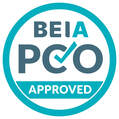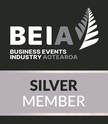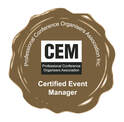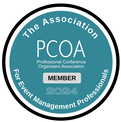These guidelines have been produced by Business Industry Events Aotearoa (BEIA) to assist you with the appointment of a Professional Conference Organiser (PCO).
Procedure
In order to identify the most appropriate PCO for your needs, it is helpful to review the following steps:
1. PRODUCTION OF A TENDER DOCUMENT
It is important to give PCOs as much information as possible when asking them to tender for a conference. General information on the event and its history will help the PCO establish the type of service that is required. It is equally important to include information on the specific services you require so that the PCO can provide you with an accurate estimate of the fees they would charge.
Based on expectations, the minimum information to be included is:
• Number of days of the conference
• How frequently the event is held
• Number of delegates expected to attend
• Registration fee at previous conferences if known
• Accommodation requirements
• Social events e.g. welcome reception, conference dinner, etc.
• Size of exhibition (if applicable)
• Pre and post conference tours, field trips and partner programmes required
• Expected number of abstracts/papers to be received
• Expected number of abstracts/papers to be accepted, either as posters or oral presentations
• Structure of the programme including the number of concurrent sessions scheduled
For accurate estimates please refer to data from previous conferences and adapt this where necessary. The more accurate this information, the more accurate the PCO can be in their estimates for you.
A copy of a Call for Abstracts/Invitation to Register, Conference Programme and/or Conference Handbook from the previous conferences provides extremely useful information.
You should be clear on whether you wish the PCO to cover all the services or whether you require separate fees to be quoted for different services. These MAY be:
• General conference management
• Sponsorship
• Exhibition sales and management
• Scientific programme management
• Registration
• Social events
• Accommodation
In addition, it is prudent to ask each company to outline any other charges that will need to be considered. These are typically referred to as disbursements and cover such items as phone/e-mail costs, photocopying, general stationery, additional staff costs etc. These costs are usually included in the conference budget.
Some companies also charge additional service charges on other budget items or receive commission from suppliers and it is helpful to ask companies to outline their policy on these matters. It is typical for a PCO to receive a 10% commission from accommodation providers. This 10% covers their management of the accommodation process which can be a very time consuming task.
It should be noted that to ask a PCO to prepare a budget for your event as part of the tender process is not common practice.
A PCO will need details about your event to be able to write an accurate budget. Any budgets written without this essential detail can be extremely misleading and are frequently totally inaccurate.
2. OBTAINING OF PRELIMINARY INFORMATION ON ACCREDITED PCOS
It is recommended that you view the CINZ Approved PCO Members from the CINZ website and request a proposal from one of these members as they are accredited and work to a code of ethics, Click here to view a list of accredited BEIA PCO Members.
3. CREATING A SHORTLIST OF SUITABLE PCOS
In order to identify PCOs that may be suitable for the management of your event it is important to establish some broad criteria/guidelines such as:
• General experience with similar conferences (size, type)
• Image and reputation
• Affiliations to professional memberships/associations
• Regional experience/coverage
• Number of years in operation
• Testimonials
4. DISTRIBUTION OF THE TENDER DOCUMENT
Once a shortlist of suitable PCOs has been compiled, the tender document or request for proposal can be distributed to them. It is normal practice to allow companies several weeks to produce the information that you require and to provide an estimate of fees. It is not good practice to ask a number of PCOs to make reservations prior to appointment of a PCO. This can lead to malpractice.
5. EVALUATION OF TENDER DOCUMENTS
If fees have been quoted in a similar way then it is easy to establish the least expensive from the most expensive services on offer. You will also have more detailed information on the type and level of service that each company can offer.
6. REFERENCE CHECKS ON PROSPECTIVE PCOS
At this stage of the process it is a good time to ask companies for written references or for contacts that you can speak to to obtain references. References should be taken up with clients of both past and future events, and it may be appropriate to contact a supplier such as a venue or hotel.
7. PRESENTATATION AND INTERVIEW
It is normal practice to ask companies to make a short presentation on their services to the Organising Committee and/or International Association. In general terms, 10-20 minutes is sufficient for the presentation, with 30-45 minutes allowed after the presentation for the company to answer any questions you may have. When selecting companies for interview it is important to let them know which particular issues, if any, you wish them to address in their presentation. This is the time when you must assess which company offers the most appropriate service at the most cost effective price.
8. SELECTING THE PCO
The PCO you select will be the one who most clearly matches your requirements and with whom you feel you will be able to work in partnership. It is also important to know with whom you will be working and it is recommended that a visit be made to the office of the PCO to meet the team who may be assigned to you.
Once you have selected the PCO you need to ensure that you have a clear written contract, which includes a specification of the work you require to be undertaken by the PCO. Most PCOs will have a standard agreement that they will send to you for consideration but it is wise to allow a legal representative to look at these to ensure that your interests are appropriately and properly protected.
1. PRODUCTION OF A TENDER DOCUMENT
It is important to give PCOs as much information as possible when asking them to tender for a conference. General information on the event and its history will help the PCO establish the type of service that is required. It is equally important to include information on the specific services you require so that the PCO can provide you with an accurate estimate of the fees they would charge.
Based on expectations, the minimum information to be included is:
• Number of days of the conference
• How frequently the event is held
• Number of delegates expected to attend
• Registration fee at previous conferences if known
• Accommodation requirements
• Social events e.g. welcome reception, conference dinner, etc.
• Size of exhibition (if applicable)
• Pre and post conference tours, field trips and partner programmes required
• Expected number of abstracts/papers to be received
• Expected number of abstracts/papers to be accepted, either as posters or oral presentations
• Structure of the programme including the number of concurrent sessions scheduled
For accurate estimates please refer to data from previous conferences and adapt this where necessary. The more accurate this information, the more accurate the PCO can be in their estimates for you.
A copy of a Call for Abstracts/Invitation to Register, Conference Programme and/or Conference Handbook from the previous conferences provides extremely useful information.
You should be clear on whether you wish the PCO to cover all the services or whether you require separate fees to be quoted for different services. These MAY be:
• General conference management
• Sponsorship
• Exhibition sales and management
• Scientific programme management
• Registration
• Social events
• Accommodation
In addition, it is prudent to ask each company to outline any other charges that will need to be considered. These are typically referred to as disbursements and cover such items as phone/e-mail costs, photocopying, general stationery, additional staff costs etc. These costs are usually included in the conference budget.
Some companies also charge additional service charges on other budget items or receive commission from suppliers and it is helpful to ask companies to outline their policy on these matters. It is typical for a PCO to receive a 10% commission from accommodation providers. This 10% covers their management of the accommodation process which can be a very time consuming task.
It should be noted that to ask a PCO to prepare a budget for your event as part of the tender process is not common practice.
A PCO will need details about your event to be able to write an accurate budget. Any budgets written without this essential detail can be extremely misleading and are frequently totally inaccurate.
2. OBTAINING OF PRELIMINARY INFORMATION ON ACCREDITED PCOS
It is recommended that you view the CINZ Approved PCO Members from the CINZ website and request a proposal from one of these members as they are accredited and work to a code of ethics, Click here to view a list of accredited BEIA PCO Members.
3. CREATING A SHORTLIST OF SUITABLE PCOS
In order to identify PCOs that may be suitable for the management of your event it is important to establish some broad criteria/guidelines such as:
• General experience with similar conferences (size, type)
• Image and reputation
• Affiliations to professional memberships/associations
• Regional experience/coverage
• Number of years in operation
• Testimonials
4. DISTRIBUTION OF THE TENDER DOCUMENT
Once a shortlist of suitable PCOs has been compiled, the tender document or request for proposal can be distributed to them. It is normal practice to allow companies several weeks to produce the information that you require and to provide an estimate of fees. It is not good practice to ask a number of PCOs to make reservations prior to appointment of a PCO. This can lead to malpractice.
5. EVALUATION OF TENDER DOCUMENTS
If fees have been quoted in a similar way then it is easy to establish the least expensive from the most expensive services on offer. You will also have more detailed information on the type and level of service that each company can offer.
6. REFERENCE CHECKS ON PROSPECTIVE PCOS
At this stage of the process it is a good time to ask companies for written references or for contacts that you can speak to to obtain references. References should be taken up with clients of both past and future events, and it may be appropriate to contact a supplier such as a venue or hotel.
7. PRESENTATATION AND INTERVIEW
It is normal practice to ask companies to make a short presentation on their services to the Organising Committee and/or International Association. In general terms, 10-20 minutes is sufficient for the presentation, with 30-45 minutes allowed after the presentation for the company to answer any questions you may have. When selecting companies for interview it is important to let them know which particular issues, if any, you wish them to address in their presentation. This is the time when you must assess which company offers the most appropriate service at the most cost effective price.
8. SELECTING THE PCO
The PCO you select will be the one who most clearly matches your requirements and with whom you feel you will be able to work in partnership. It is also important to know with whom you will be working and it is recommended that a visit be made to the office of the PCO to meet the team who may be assigned to you.
Once you have selected the PCO you need to ensure that you have a clear written contract, which includes a specification of the work you require to be undertaken by the PCO. Most PCOs will have a standard agreement that they will send to you for consideration but it is wise to allow a legal representative to look at these to ensure that your interests are appropriately and properly protected.






